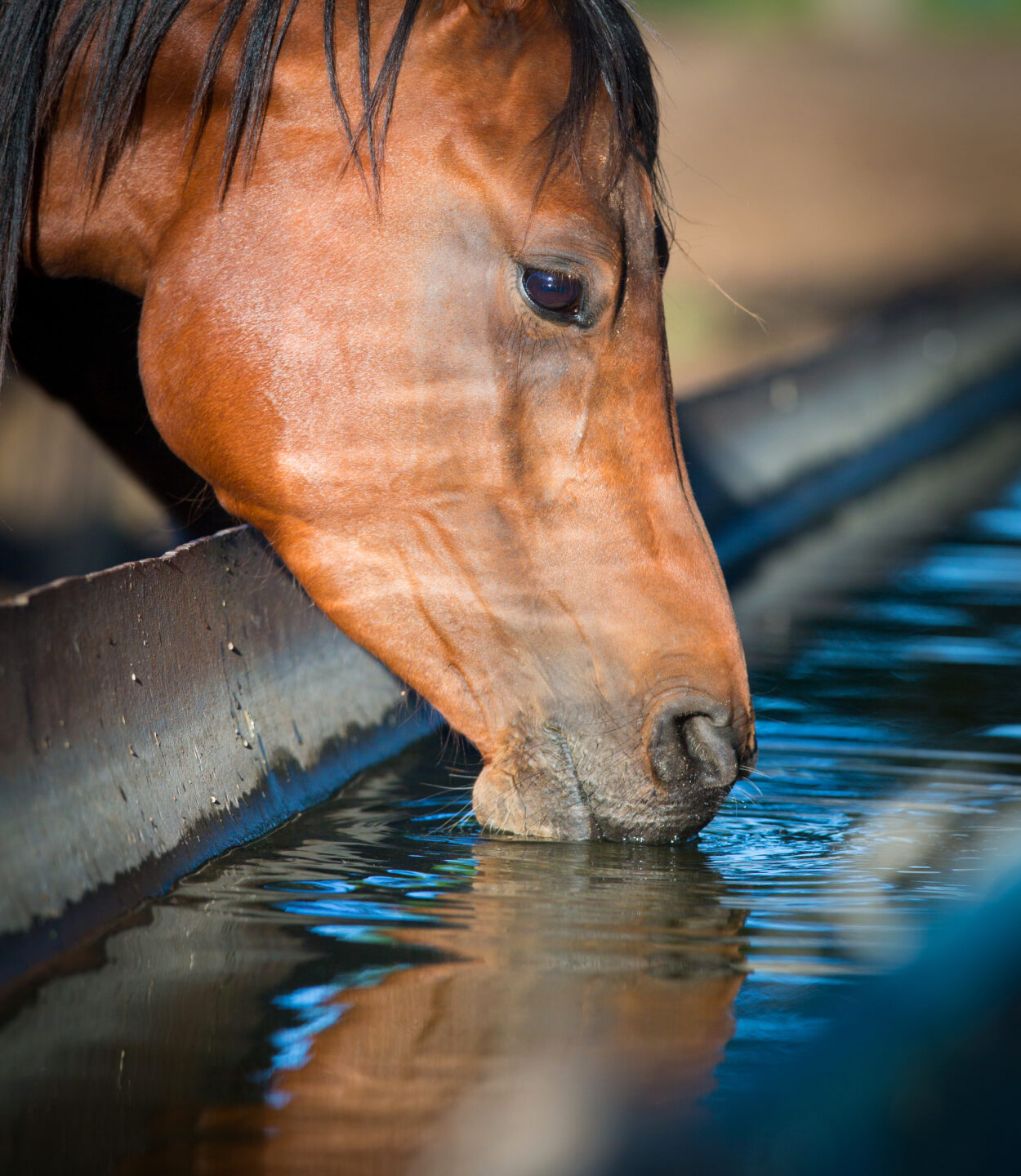Horses, Heat and Humidity

Summer is in full swing, including the heat and humidity. Horses, similar to humans, may have a difficult time coping and cooling off with the combination of heat and humidity. The added challenge of cooling off partially results from the inability of the sweat to evaporate in humid weather.
The combination of sweat and humid weather acts like an insulation, making horses even hotter. Some horses have diagnosed trouble sweating (anhidrosis) during hot and humid weather, which adds other challenge to cool off.
Consult Veterinary support if your horse has trouble sweating.
Some ways to help you and your horse cope with hot humid weather is to calculate the temperature-humidity index (THI). Add the air temperature (in degrees Fahrenheit) to the humidity percentage.
For example, if it is 80 degrees Fahrenheit and the humidity is 60%, the THI is 140. When the THI reaches 150, horses will have difficulty cooling off, at 180 working a horse can be unsafe to the horse’s health and you should actively help the horse cool off.
Another supportive tool is to take your horse’s temperature. Normal is between 99.5- and 100.5-degrees Fahrenheit at resting and can range between 103 to 104 degrees during exercise.
When a horse’s temperature reaches 105 this is dangerous, and the risk of overheating or health damage can occur. Above 105 degrees horses are likely to suffer heatstroke and require immediate Veterinary attention.
Helpful ways to keep horses cool in hot humid weather:
1. Clean and cool water available at all times
Horses prefer fresh, cool water in sufficient amounts when it is hot and humid. Keeping clean and cool water in deep buckets in the shade will help keep water cool. In addition to the automatic waterers (if available) additional deep buckets may be required to allow horses to gulp water versus sip smaller amounts. I often will consume a substantial amount of cool water in one sitting in a light-colored container when it is hot and humid.
2. Provide appropriate feed for the horse’s activity
Feeding excess hay in hot humid weather can contribute to added body heat from the digestive process. Feeding smaller amounts more frequently or use of a slow feeding hay bag may be beneficial. Feed a quality balanced feed that is designed for the exercise requirements of the individual horse. If I am a daily jogger, my nutrient requirements vary significantly from a marathon runner in training.
3. Consider individual fitness
Physical fitness and environments vary between individual horses. Research has shown horses well-conditioned and of optimal physical fitness tend to cope with hot humid weather more easily than those who are out of shape. Horses residing in climates with extreme heat and humidity tend to cope better than horses traveling and adjusting to different climates. Although the horses may cope better if they are acclimated to the heat and humidity, it is still important to observe safe exercise and offer healthy ways to help horses keep cool.
